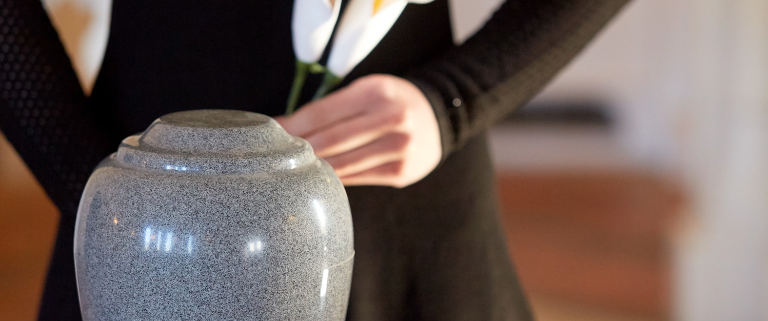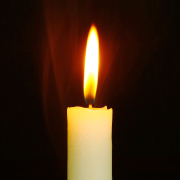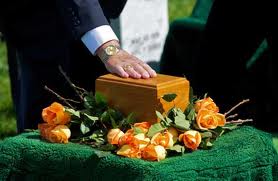How to Survive a Sleepless Night After the Death of a Loved One
 The death of a loved one is never easy, especially if it’s a partner with whom you spend most of your days and nights. After the funeral services, all you will have are pictures and memories. If you opt for cremation, you could go home with a customized urn with the ashes.
The death of a loved one is never easy, especially if it’s a partner with whom you spend most of your days and nights. After the funeral services, all you will have are pictures and memories. If you opt for cremation, you could go home with a customized urn with the ashes.
Healing can be pretty hard after the ceremonies are over and all the condoling guests go on with their daily lives. Some widows share that it’s easy in the morning because you can pretend that your partner is out at work or doing their own usual thing. But once the evening slows to a crawl and you have a dinner meal alone and retire to an empty bed, the reality that your partner is no longer there hits hard.
The emptiness that comes with losing a loved one is like a punch to the gut in the quiet of the night. The silence reverberates even louder, and the lonely feeling sinks in like the eye of a storm. There is no escape! It may be harder to fall asleep when you’re in mourning. Even worse is when you wake up crying in the middle of the night and can’t get back to sleep. Here are some helpful suggestions to help you endure and survive a sleepless night after the death of a loved one.
Stick to a Routine
Getting back to your routine may be challenging, especially if your partner is noticeably absent. One of the things that may be helpful for you is to set a new one. Many bereaved spouses say they have had no choice but to adapt to a new normal when their partner dies. It’s the only way to cope and move on. Here are some suggestions to set that routine:
- Have dinner at the same time each night
- Set a bedtime and stick with it even if it’s hard
- Turn on your alarm clock every morning and get up
Regardless of the time you fall asleep or how little sleep you have, get up in the morning when your alarm rings. This is how you set your body clock if you’re determined to establish a new routine. You can take a power nap in the afternoon. However, make sure that you set a timer for 30 minutes and don’t go longer than that. An excessively long nap is counterproductive, making you feel more lethargic.
Create a Relaxing Bedroom Ambiance
When you’re grieving, it’s even more critical to practice good sleep hygiene, which means setting up a room with a calming atmosphere. It also means developing a ritual that promotes sleep. It would help to do the following:
- No gadgets one hour before bed because blue light is a stimulant
- Set up low lights in the room to give it a zen-like feel
- Put on some relaxing music or maybe the evening news
- Replace the bed sheets and pillowcases
- Drink calming chamomile tea before bed
- Light up a lavender aromatherapy candle or use an essential oil diffuser
- Do some inspirational reading before bed
For long wakeful hours, dull reading material may help lull you into sleep. Keeping a journal where you can write feelings may also help in releasing negative emotions. You can also put on a late-night talk show on the radio or play a serene playlist to help you sleep.
Make Time for Movement
If you don’t have a regular exercise habit, it’s time to start and get your body moving. Perhaps you’ve also been remiss in going to the gym or working out because you took time to rest after the memorial services. And that’s totally okay because grief can take its toll on your body, so rest is essential.
However, after you’ve gotten ample rest, you must find time for physical movement. Make it a point to schedule exercise, but not within three hours before going to bed. Doing so may stimulate you and prevent sleep. Instead, it’s best to do your workouts in the morning or early afternoon. Exercise will relieve your stress and help you fall asleep at night. Working out also releases endorphins or happy hormones, which elevate your mood. This will keep you going throughout the day, so you’re ready to unwind and relax when you get home.
Steer Clear of Caffeine and Alcohol
Caffeine is a known stimulant, so it will interfere with your sleep, especially during the grieving period. A cup of coffee in the morning should suffice. But apart from your usual java kick, there’s also caffeine in colas, chocolate, herbal tea, exercise drinks, and chocolate milk. On top of that, avoid excessive alcohol consumption. A tiny glass of wine may help you relax and fall asleep. However, drowning your troubles and grief with alcohol is not a good idea.
Getting tipsy or even drunk will weaken your immune system. And just because you’re “wasted” or knocked out doesn’t mean your body is getting restorative sleep. This is why most people who drink excessively get killer hangovers. Avoid the habit of drinking and prevent a downward spiral to potential alcoholism by watching what you put in your mouth. Remember, the last thing your deceased loved one wants to see is your broken spirit.
Make Conscious Choices in Day Time
It will help you sleep well at night if you get sunlight in the afternoon. The sun can help reinforce your body’s circadian rhythms, helping you get a good night’s rest. It’s also vital to be mindful of what you eat. Having a light evening meal works better than going to sleep on a full stomach because an overworked digestive system may keep you up.
Most of all, avoid sleeping pills because you could grow too dependent on them. If all else fails and you can’t sleep, try making warm milk in the kitchen and sipping it slowly while looking at the stars. It’s okay to cry because releasing your emotions is cathartic and healing. And if you develop insomnia while processing the loss of your loved one, it may be a good idea to talk to a mental help professional to help you move on. Doing these things will help you get through all those sleepless nights. Take it one night at a time.








